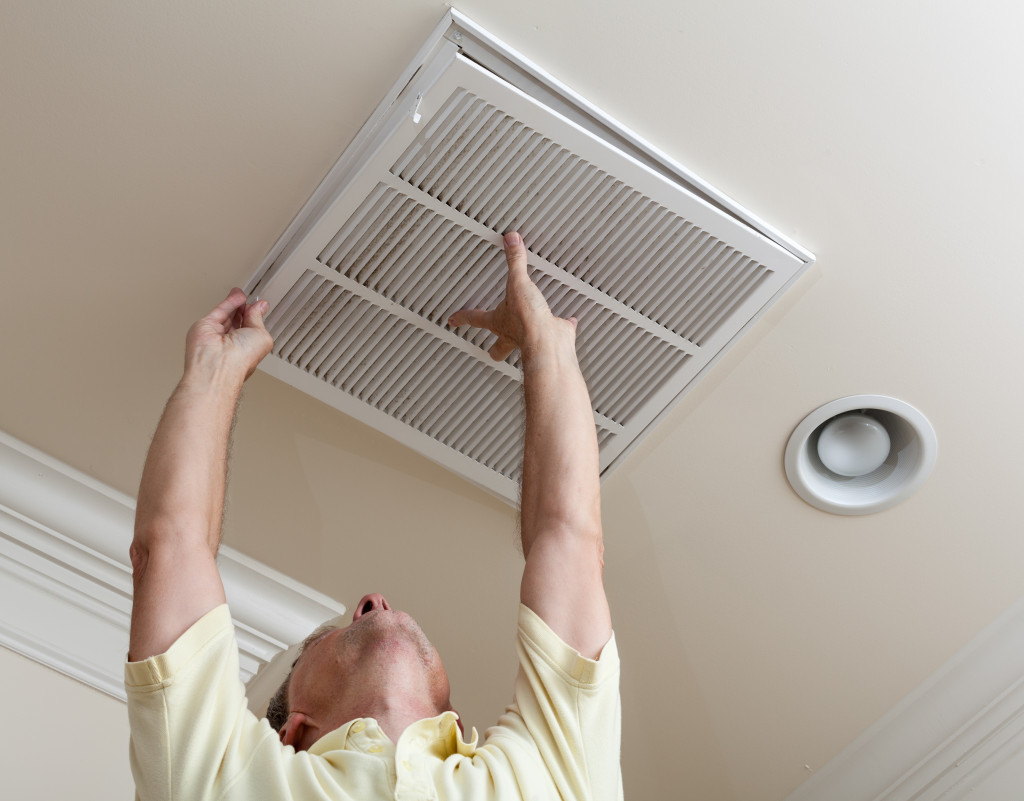What’s something you can’t see but is extremely important? Easy, it’s air. That’s something everybody learns in grade school. However, many seem to downplay the importance of breathing in quality air. It doesn’t get talked about a lot. But know that, for the sake of your respiratory and overall health, clean air is essential.
There is not much you can do about the quality of air when you are outside. There are cars, factories, and machines spewing out gases not healthy for your lungs. However, air quality in your home is something you can work on.
Your Lungs Have Their Own Filtering Process
This lesson is also part of grade school science. But in case you need to refresh your memory, read on to learn how your lungs naturally clean the air you breathe.
In the nostrils are visible tiny hairs that filter large air particles you inhale. The nasal cavity also has a mucus lining that traps small particles and microorganisms such as dust and dirt. Your lungs’ bronchi also have tiny hair-like projections that push debris out of the airways.
It’s incredible how the body has natural ways of keeping you healthy. However, your organs can only do so much. The worse your environment gets, the harder it is for your systems to stay healthy. Some studies show just how badly polluted environments can harm the respiratory health of people, especially children.
How Bad Air Affects Children’s Respiratory Health
Studies show that air pollution causes adverse health effects on children in the womb. Pregnant women’s exposure to certain levels of particle pollution can cause premature birth. Lung growth also suffers in environments with extreme air pollution. Children living in polluted areas suffer from reduced lung growth. Their lungs may not be able to develop to total capacity anymore.
These are just some detrimental long-term effects of poor air quality on children. Adults are not exempted. Fortunately, studies show that addressing pollution can significantly reduce these harmful effects.
While you contribute to the more significant effort to reduce pollution all over the globe, there are things you can do at home to ensure that your family is protected.

Steps to Improve Your Air Quality at Home
As previously said, there are very few things you can do with the outdoor air quality. However, you can make tiny changes at home to keep the air quality optimal for your respiratory health. Here are a few ways you can do to keep the air you breathe inside clean:
1. Don’t Smoke
If you are a chain smoker or a habitual smoker, one reason you should quit is that smoking not only affects you but your whole family. Secondhand smoke kills. It contains thousands of chemicals, some of which are cancerous. Even a short exposure to cigarette smoke can cause health implications, according to the CDC.
It doesn’t matter if you don’t smoke indoors. Cigarette smoke clings to your skin, hair, and clothes. The toxins from your cigarette can get transferred to your kids and other family members and can trigger allergies.
2. Check Your Ventilation
When home air quality is your concern, the first thing you should pay attention to is your heating and ventilation system. Check your outdoor vents to make sure they are working correctly. Check your return air vents. These are the vents inside your home that pull the air back in for heating and cooling. Make sure that they are clean.
Always use your kitchen’s exhaust fan when cooking. You don’t want hot air mixed with gases and particles circulating in your kitchen.
Change your air filters regularly. Your air conditioner and furnace have filters that trap dust and debris. Don’t let them get clogged, as this will cause your appliances to stop working correctly.
If you are not sure how to replace or clean your heating, ventilation, and air conditioning (HVAC) system, you can always contact an HVAC company to do the maintenance check for you.
3. Grow Indoor Plants
You can always count on nature to have a solution to your health problems. Plants are a godsend for your air quality control. You can check NASA’s clean air study for in-depth research on plants that help eliminate chemicals indoors.
You can get Devil’s Ivy, which is also commonly known as pothos. You hit three birds with this one plant as it’s very aesthetic and adds a natural touch to any space in your house. Pothos is easy to grow. You don’t have to be a plant expert to keep pothos alive. It can eliminate toxins such as formaldehyde, xylene, and benzene in your home.
These are three easy ways you can make sure that you and your family breathe healthy air. Outside the home, contribute to the global effort to reduce air pollution and global warming in general. What you do will benefit not only your family but the whole world.

